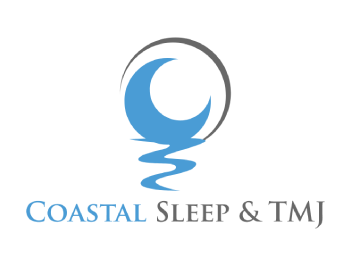Sleep apnea poses significant challenges to those who suffer from it. Coastal Sleep and TMJ, led by Dr. William Harper in Poquoson, VA, offers effective solutions through oral appliance therapy. By understanding the causes and treatments of sleep apnea, patients can make informed decisions about their health.

Understanding Sleep Apnea
Sleep apnea arises from disruptions in normal breathing during sleep. This condition falls into two primary categories: obstructive sleep apnea and central sleep apnea.
Obstructive sleep apnea (OSA) occurs when the muscles in the throat relax excessively. This relaxation causes the airway to narrow or close completely, impeding airflow. The body then jolts awake momentarily, often without the person realizing it, to reopen the airway. These interruptions can happen multiple times throughout the night, leading to fragmented and poor-quality sleep.
Central sleep apnea (CSA) differs from OSA in its mechanism. CSA stems from a failure of the brain to send proper signals to the muscles controlling breathing. Unlike OSA, the airway does not become blocked. Instead, the brain fails to signal the body to breathe, leading to pauses in respiration. CSA commonly results from underlying medical conditions or usage of specific medications.
Traditional Treatment Options
Patients often explore several traditional treatments for managing sleep apnea. Among these, Continuous Positive Airway Pressure (CPAP) and surgical interventions remain prevalent.
CPAP involves wearing a mask connected to a machine that delivers a steady stream of air. This air pressure keeps the airway open, preventing the interruptions in breathing characteristic of sleep apnea. While effective, many patients find the CPAP machine cumbersome and uncomfortable, leading to low adherence rates.
Oral Appliance Therapy
Oral appliance therapy provides a less invasive alternative for managing sleep apnea. This treatment involves wearing a custom-fitted device in the mouth during sleep.
Oral appliances resemble mouthguards or orthodontic retainers. They function by repositioning the jaw and tongue to maintain an open airway. Dr. William Harper constructs these devices to fit each patient’s unique dental structure, ensuring comfort and effectiveness.
Effectiveness Compared to Traditional Treatments
Studies show that oral appliance therapy can effectively reduce the severity of sleep apnea in many patients. While CPAP remains the gold standard for severe cases, oral appliances offer a viable alternative for mild to moderate OSA. Patients often find oral appliances easier to use consistently, leading to improved outcomes.
Benefits of Oral Appliance Therapy
Oral appliance therapy provides numerous benefits over traditional treatments, enhancing comfort and compliance among patients.
Oral appliances offer greater comfort compared to CPAP masks. These devices enable patients to sleep in various positions without cumbersome equipment. Their compact size also makes them more convenient for travel, ensuring consistent treatment.
Improved Compliance and Use
Patients using oral appliances generally exhibit higher compliance rates compared to those using CPAP. The ease of use and comfort of oral appliances often lead to better adherence, which translates to more consistent treatment and improved sleep quality. By addressing the root of the problem in a non-invasive manner, patients can experience significant relief from symptoms.
Sleep apnea requires effective management to improve overall health and quality of life. Coastal Sleep and TMJ, under the expert care of Dr. William Harper, provides patients with advanced oral appliance therapy as a viable treatment option. Patients suffering from sleep disturbances should seek professional advice to explore the best solutions for their specific needs.
For more information or to schedule a consultation, contact Coastal Sleep and TMJ in Poquoson, VA. Dr. William Harper and his team stand ready to assist you in achieving restful, uninterrupted sleep
